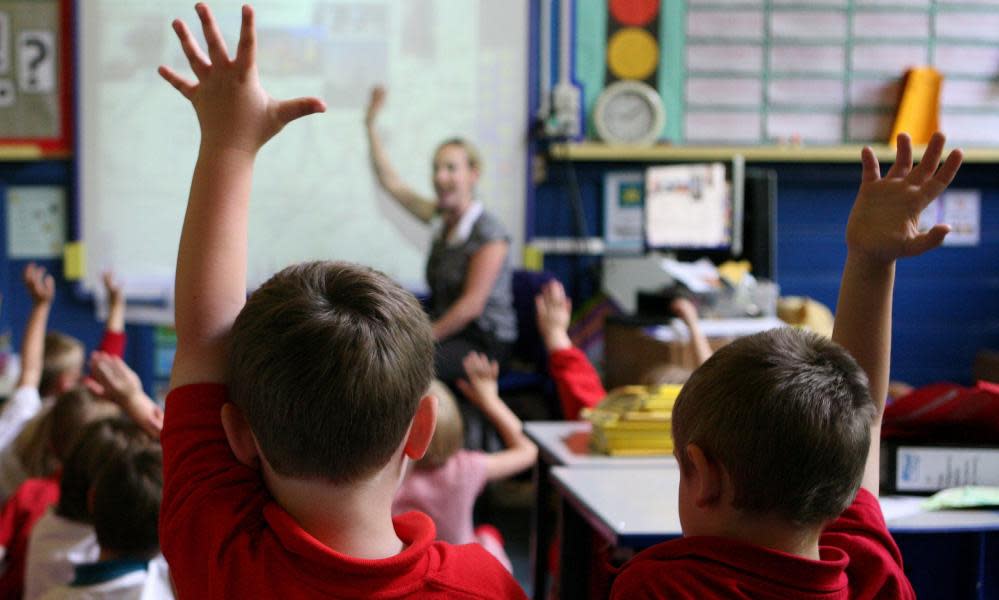Anxious middle-classes look to private schools after coronavirus disruption

Increasing numbers of middle-class parents are planning to desert state schools this coming September, over anxieties their children have “fallen behind” private school pupils during lockdown and growing fears about the threat of further disruption to state education next year.
The Independent Schools Association told the Observer that it has noticed an upsurge in the number of what it describes as “high-aspirational, worried” parents of state school pupils looking for private school places in September, while the Independent Association of Prep Schools said demand had increased considerably during recent weeks.
More than a dozen headteachers at private schools contacted by the Observer said they had seen an extraordinary surge in inquiries from “unhappy” parents of state school pupils, with several schools across the country reporting a 20-30% increase in demand for places.
Related: Four in 10 pupils have had little contact with teachers during lockdown
In April, just 3% of state-funded primary and 6% of state-funded secondary schools managed to provide “live” online lessons for students with their teachers, compared to 59% of private primary and 72% of private secondary schools, according to a survey by Teacher Tapp.
“Many affluent middle-class families sending their children to state schools have become aware and often concerned about the digital divide between state and private sector,” said Diane Reay, emeritus professor of education at Cambridge University. “Fleeing to the private sector is an easier option than campaigning for state schools to be properly resourced and equipped, which is what should be happening. The state sector has always been the poor relation in education – around 25% of education spending goes on the 7% who are privately educated – but more middle-class flight will impoverish the sector more.”
Related: UK children could 'lose 3% of lifetime earnings' due to lockdown school closures
Reay warned that the social class gap between private and state school pupils will widen as a result of the pandemic, and a compounding parallel gap in achievement will also open up. “It is this that middle-class parents are becoming alarmed about. If the 7% are about to accelerate and amplify their educational advantage, then middle-class parents who have always felt ambivalent about the state sector will want to join them. That’s going to entrench class inequalities in education, as the privately educated move even further away in terms of their privilege and advantage.”
Andrew McCleave, headteacher of Ballard School, an independent day school in the New Forest, said parents had been impressed by the school’s decision to provide a full timetable of lessons during lockdown, with the majority delivered by teachers online. As soon as the school closed, “we knew that we would be able to deliver our education that way. Our pupils have greater access to technology [than state school pupils]: if we want to do a Zoom lesson, we can pretty much guarantee that every one of our pupils will be able to access it, while state schools won’t be able to.”
On much, much less funding than private schools, families of vulnerable children – and many others – were supported.
Jules White, head teacher and leader of Worth Less? campaign
He pointed out that private schools also have much smaller classes than state schools, and added that, compared to state schools he knew of, more of his teachers were actually available to teach online. “If staff are in school supervising key workers’ children, they can’t be delivering online lessons to children who aren’t in school. We had a few doctors among our parents, but we didn’t have a lot of key workers’ children in. That meant our staff could deliver live lessons to everyone.”
He agreed with Reay that inequalities are being cemented and an academic gap is opening up between private and state school pupils. “There’s no way that the children who are getting online lessons from independent schools are not going to be at an advantage … Because they’ve been taught and others haven’t.”
Jules White, headteacher and leader of the Worth Less? campaign for more state school funding, said the idea that state schools had somehow failed parents and pupils was “very odd”. “Throughout the crisis, state schools were instrumental in protecting children of low-paid key workers, students from disadvantaged backgrounds and those with special educational needs. On much, much less funding than private schools, families of vulnerable children – and many others – were supported.”
The Department for Education said the government had invested more than £100m supporting remote education, and launched Oak National Academy to provide online lessons to pupils during lockdown. A spokesperson said: “Schools and teachers have gone to great lengths over recent months to support and educate children at home and in the classroom.”
He added: “Our £1bn Covid catch-up fund will help all children to make up for the impact lost time in school has had on their education.”

 Yahoo News
Yahoo News 
